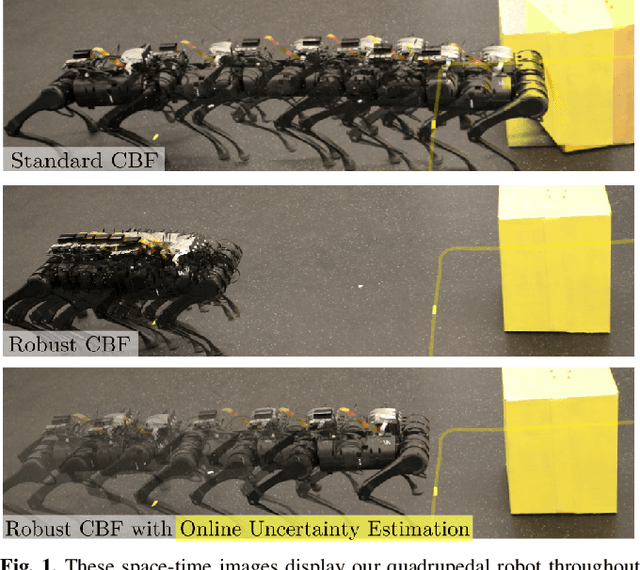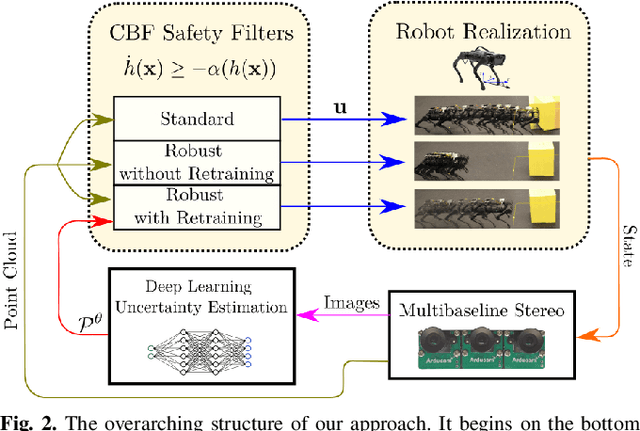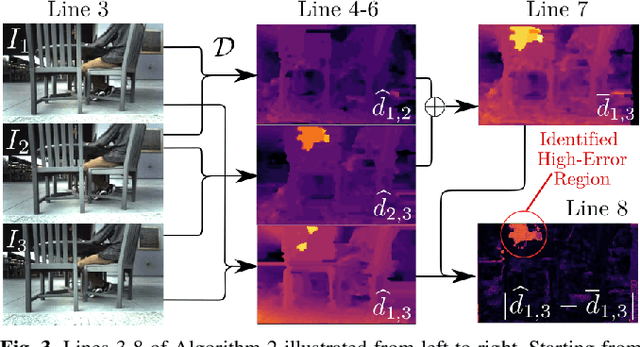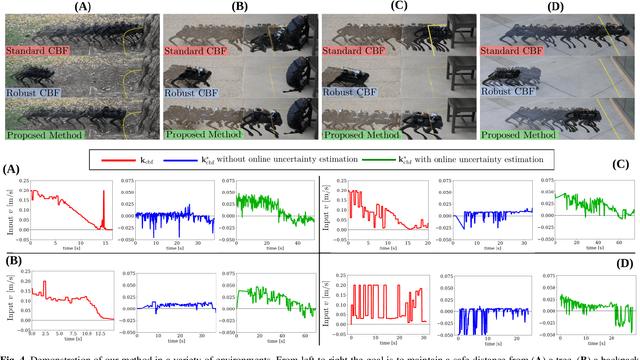Ivan D. Jimenez Rodriguez
Self-Supervised Online Learning for Safety-Critical Control using Stereo Vision
Mar 02, 2022



Abstract:With the increasing prevalence of complex vision-based sensing methods for use in obstacle identification and state estimation, characterizing environment-dependent measurement errors has become a difficult and essential part of modern robotics. This paper presents a self-supervised learning approach to safety-critical control. In particular, the uncertainty associated with stereo vision is estimated, and adapted online to new visual environments, wherein this estimate is leveraged in a safety-critical controller in a robust fashion. To this end, we propose an algorithm that exploits the structure of stereo-vision to learn an uncertainty estimate without the need for ground-truth data. We then robustify existing Control Barrier Function-based controllers to provide safety in the presence of this uncertainty estimate. We demonstrate the efficacy of our method on a quadrupedal robot in a variety of environments. When not using our method safety is violated. With offline training alone we observe the robot is safe, but overly-conservative. With our online method the quadruped remains safe and conservatism is reduced.
Learning Unstable Dynamics with One Minute of Data: A Differentiation-based Gaussian Process Approach
Mar 08, 2021



Abstract:We present a straightforward and efficient way to estimate dynamics models for unstable robotic systems. Specifically, we show how to exploit the differentiability of Gaussian processes to create a state-dependent linearized approximation of the true continuous dynamics. Our approach is compatible with most Gaussian process approaches for system identification, and can learn an accurate model using modest amounts of training data. We validate our approach by iteratively learning the system dynamics of an unstable system such as a 9-D segway (using only one minute of data) and we show that the resulting controller is robust to unmodelled dynamics and disturbances, while state-of-the-art control methods based on nominal models can fail under small perturbations.
 Add to Chrome
Add to Chrome Add to Firefox
Add to Firefox Add to Edge
Add to Edge